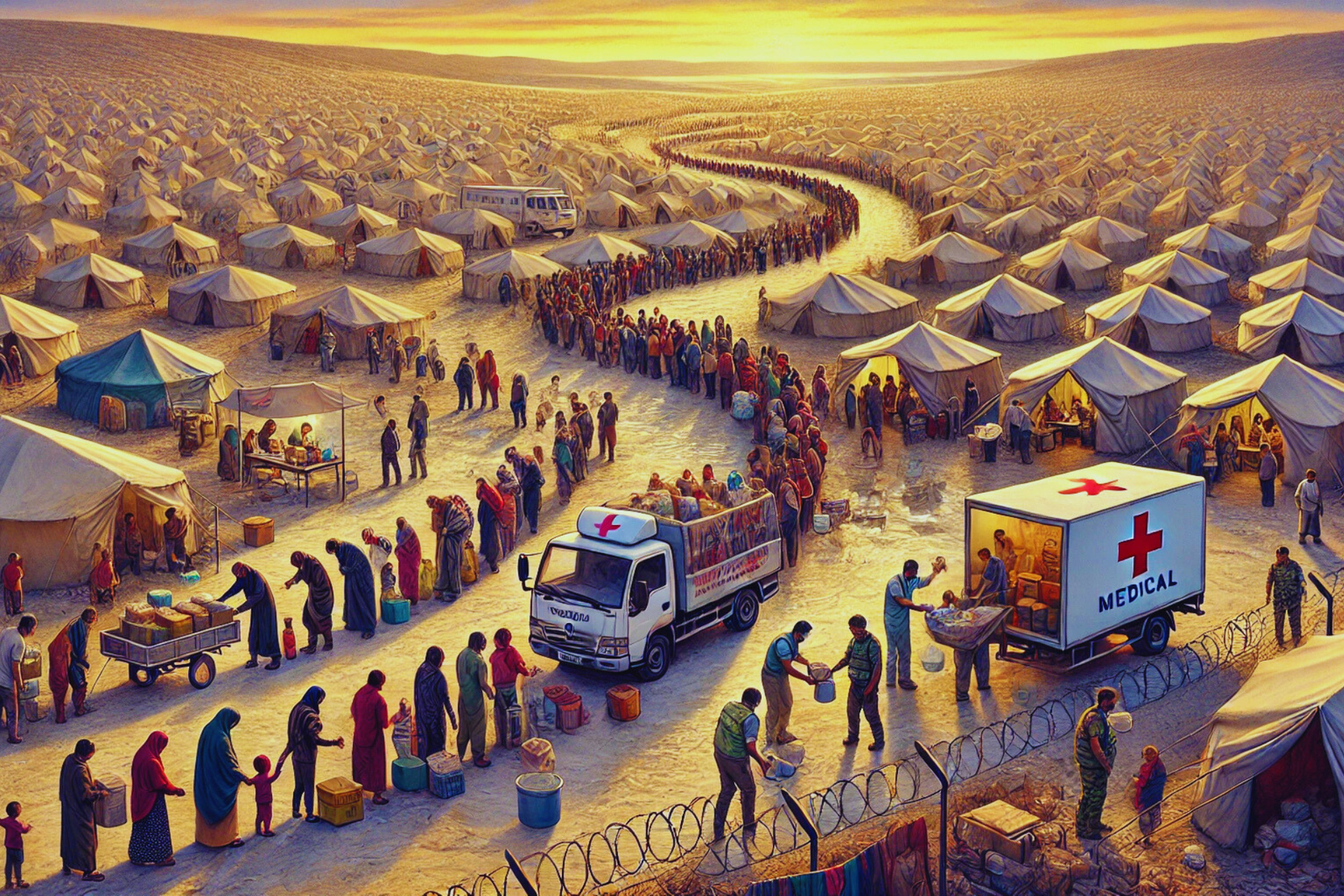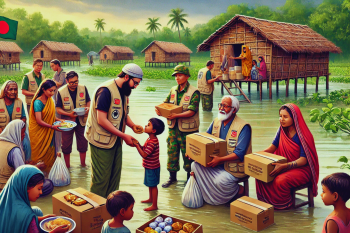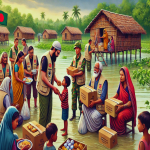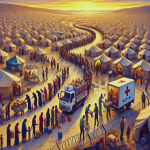There are over 26 million refugees worldwide
An additional 4.2 million people are asylum seekers, meaning they have fled their home country and are seeking protection in another country. More than 80% of refugees and asylum seekers are hosted in developing countries, with Turkey, Colombia, Pakistan, and Uganda hosting the largest numbers.
In addition to refugees and asylum seekers, there are also 48 million people internally displaced within their own countries due to conflict or persecution.
The global refugee crisis has reached unprecedented levels, with more than 110 million people forcibly displaced due to conflicts, persecution, and environmental disasters. Refugees face extreme hardships, living in overcrowded camps or makeshift shelters without adequate access to food, healthcare, or education. Many of these camps are located in regions such as the Middle East, Africa, and parts of Asia, including Bangladesh—home to over one million Rohingya refugees.
Humanitarian organizations, including the Ambedkar Global Mission, work to provide essential services like food, water, shelter, and psychological support to displaced populations. However, the growing scale of displacement, combined with resource limitations and political challenges, has put immense pressure on aid agencies. Ensuring long-term support, beyond immediate relief, requires coordinated global efforts to address both root causes and sustainable resettlement strategies.









